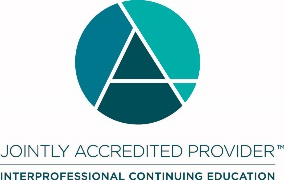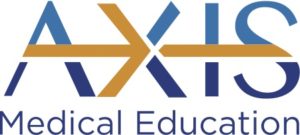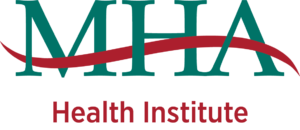Friday, April 5
Patient Rights Update and Overview
Session Overview
Hospitals and critical access hospitals must comply with the Centers for Medicare & Medicaid Services Conditions of Participation. Based on CMS, DNV and The Joint Commission, Patient Rights is the second most-cited condition-level deficiency in the state of Missouri during 2022 and 2023, and the top-cited condition-level deficiency in the nation. Within that condition, most noncompliances come from the regulations governing lack of safe environment, abuse, restraints and seclusion. This is a new Condition of Participation for Critical Access Hospitals, effective Jan. 1, 2023.
Objectives
-
- describe the CMS requirements for providing care in a safe environment for all patients, specifically patients who are suicidal or in need of behavioral health services
- discuss the CMS adoption of the TJC Suicide Panel recommendations of the comprehensive ligature risk interpretative guidelines
- explain CMS definitions of abuse, restraints and seclusion
- describe abuse investigation requirements
- explain restraint death reporting requirements
Friday, April 12
Infection Prevention and Antibiotic Stewardship
Session Overview
This program will cover the CMS infection control standards and antibiotic stewardship program for both hospitals and critical access hospitals. The new CMS interpretative guidelines will be discussed, as well as common deficiencies in infection control and tips to ensure compliance.
Objectives
-
- describe new CMS infection control CoPs regulations and interpretative guidelines
- describe new CMS requirements for the antibiotic stewardship program
- identify examples of commonly cited infection control issues
Friday, April 19
Nursing Services
Session Overview
This session will provide an overview of the CMS regulations governing the provision of nursing services in hospitals and critical access hospitals. The Condition of Nursing Services is the most frequently cited Condition of Participation in Missouri during both 2022 and 2023. Discussions will include the interpretative guidelines and the most-cited Missouri deficiencies.
Objectives
-
- describe minimum nurse staffing requirements
- explain basic nursing care plans
- describe essential parts of medication orders
- explain appropriate medication administration timing
Friday, April 26
Construction Updates and Life Safety Codes
Session Overview
The number of deficiencies in the physical environment Condition of a Participation and the environment-of-care standards continue to increase over the last several years. This session will review commonly cited life safety code deficiencies in hospitals and commonly cited physical environment issues. CMS updates on these areas include expectations on ligature resistant environment, CMS categorical waivers, air pressure and humidity concerns in surgical suites.
Objectives
-
- describe and identify common physical environment deficiencies
- describe how and when relative humidity may be lowered in anesthetizing locations
- explain how to avoid these common deficiencies
- explain how to use a categorical waiver
Friday, May 3
Quality Assessment and Performance Improvement
Session Overview
As one of top ten most frequently cited Condition Level Deficiencies in Missouri and in the top five in the nation, this session is a must for all hospitals. Discussions will include the QAPI standards for acute hospitals, critical access hospitals and rural emergency hospitals, and the new interpretative guidelines for QAPI published March 2023. This is one of three conditions of participation for which CMS has published a worksheet to guide surveyors through the process to determine whether hospitals comply with this condition.
Objectives
-
- discuss the board responsibility for the QAPI program
- explain QAPI standards and interpretative guidelines for all hospital types
- explain the basic requirements for an effective QAPI program
- review the QAPI worksheet so staff understand surveyor expectations
Friday, May 10
Pharmaceutical Services
Session Overview
This program reviews the pharmaceutical services condition of participation and other regulatory areas that require pharmacist input and participation such as antibiotic stewardships, medication administration timing policies, medication self-administration, standing orders and other pharmacy–related issues. This program is intended for acute hospitals and critical access hospitals. Medication errors account for the largest number of medical errors in health care. They are also the most common reason for unnecessary hospital readmissions. For the first time, CMS mentions that nursing needs to be aware of the pharmacy standards. This includes medication errors, adverse events, drug incompatibilities, self‐administered medication and required medication policies.
Objectives
-
- describe CMS requirements for pharmaceutical services
- describe minimum security requirements
- explain basic required policies and procedure
- explain patient safety measures for medications
Friday, May 17
Most Frequently Cited Deficiencies in Hospitals and Critical Access Hospitals
Session Overview
All hospitals and critical access hospitals participating in the Medicare program are required to comply with CMS conditions of participation. There are deficiencies that are commonly cited throughout the nation during standard surveys and complaint investigations. This presentation identifies the top-cited regulations, explains the regulations and why they are found noncompliant.
Objectives
-
- describe and discuss why an accredited hospital must comply with CMS regulations
- explain the implications of a condition-level deficiency
- describe the most frequently cited deficiencies
- explain the regulation and related interpretative guidelines for each deficiency
















